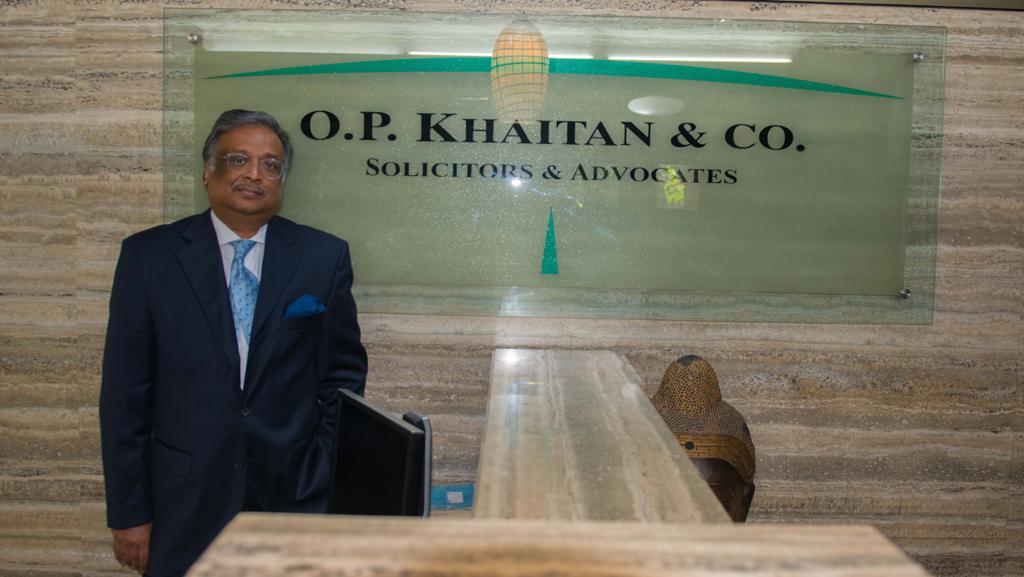Eminent corporate lawyer and managing partner of OP Khaitan & Co- Gautam Khaitan, has said that it is a major backdrop that the Indian arbitration system is considered ‘inefficient’, ‘partial’ and ‘slow’
Offshore arbitration has been a preference for settling business disputes recently.
As per the recent data available, India has been at the top of the table when it comes to legal battles outside India on the business operation on the country’s territory. It would not be wrong to state that Indian courts are best admired from a distance or with a clueless observer’s curiosity. The intention of many parties would be to stay out of the Indian courts, which means, wherever possible, make use of offshore arbitration. Eminent corporate lawyer and managing partner of OP Khaitan & Co — Gautam Khaitan, has said that it is a major backdrop that the Indian arbitration system is considered ‘inefficient’, ‘partial’ and ‘slow’ at a time when India is trying to create a business-friendly’ image worldwide. Moreover, it has been reported that the Modi government observe this trend as an infringement of the sovereignty of India.
What is the legality of foreign awards in India?
Gautam Khaitan explains that the foreign arbitration awards are governed under the Arbitration and Conciliation Act, 1996 under the Geneva Convention and New York Convention. “However, non-conventional ones are governed under the Indian laws on various grounds,” he adds. Choosing for arbitration that has a foreign seat leads to escaping the interaction with Indian Courts, atleast until enforcement. If required, parties may still approach Indian Courts for interim relief under section 9 of the Arbitration act or under section 27 for assistance in collecting evidence, believing that can be obtained in sufficient time which could be useful for the ongoing arbitration. He said that this is becoming more complicated as the present regime in India sees it as an infringement of the nation’s sovereignty. “Consequently, India has been reluctant to join the International Centre for Settlement of Investment Disputes (ICSID) and has unilaterally pulled out of multiple Bilateral Investment Treaties (BITs).”
Recently, the Supreme Court in Government of India v Vedanta Limited has held that enforcement of a foreign award needs to be filed up to three years from when the right to apply accrues. “While interpreting the Limitation Act, 1936, the Hon’ble Supreme Court also held that the enforcement court in India cannot refuse the enforcement by differently interpreting the terms of the contract. This can make the enforcement procedure more complex post offshore awards.”
Is domestic arbitration ‘unfair’ and ‘complex’?
“India is a welfare state, but it does not mean that the courts are unfair here. Choosing for arbitration that has a foreign seat leads to escaping the interaction with Indian Courts, atleast until enforcement. If required, parties may still approach Indian Courts for interim relief under section 9 of the Arbitration act or under section 27 for assistance in collecting evidence, believing that can be obtained in sufficient time which could be useful for the ongoing arbitration. However, the system is really very slow and complex,” he says. Companies that emigrate arbitration outside consider the domestic system inefficient. Gautam Khaitan said that the crux of the argument is the intervention of the judicial system in the arbitration process. “The order of the arbitrator in India is binding. However, the complexity is when the order is challenged before the court. This kills the whole purpose of having a quick and swift alternate dispute resolution major attractions for parties.
Significantly, some of the known foreign arbitral jurisdictions have been able to draw a fine balance in the exercise of judicial restraint and intervention when the award is under challenge. Mr. Khaitan shows his concerns towards the ongoing arbitration practice in our country.
What is the solution?
The present regime led by Prime Minister has been trying to project ‘new India’ as a nation that is ‘business-friendly’. In contrast, the data available shows that India is not doing great on the index of ease of doing business by the World Bank. Moreover, ranking in the enforcing contract index is not applaudable. “If you want to attract investments and make India a real business-friendly nation you will have to enhance the corporate governance and related alternate dispute resolution mechanism.”
The Indian government’s current support for Institutional arbitration might owe as much to the desire to take a burden off from the Indian courts as it does to enhance the efficiency of the onshore arbitration system. The increased support for institutional arbitration in India is tangible, considering the demise of LCIA India and this introduction of Institutional arbitration will be celebrated if implemented well.
He further asserted the need of introducing new laws in contrast to the age-old ones that have only been amended once. “The Arbitration and Conciliation Act, 1996 is pretty old and has only been amended in 2015. Now the business world has evolved a lot and we need ultra-advance laws to deal with it. The intervention of the courts must also be minimized in the alternate dispute resolution mechanism. There is also a need for raising awareness amongst the stakeholders on the issue. At the same time, there is also a need to enhance the already existing arbitration system in the country.”
With over three decades of experience in the corporate legal world, Gautam Khaitan is known for his outspokenness on corporate governance and related legal issues.




